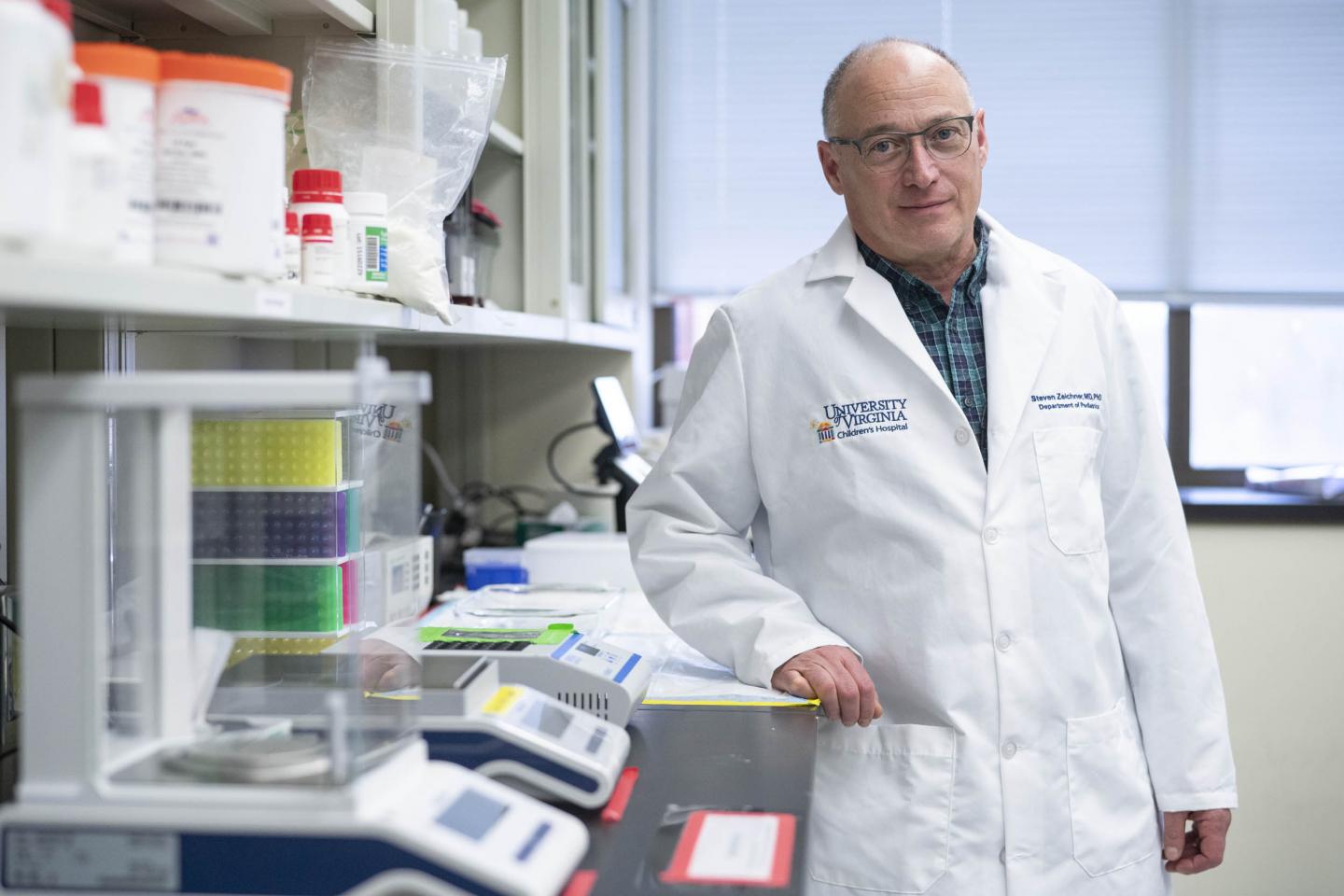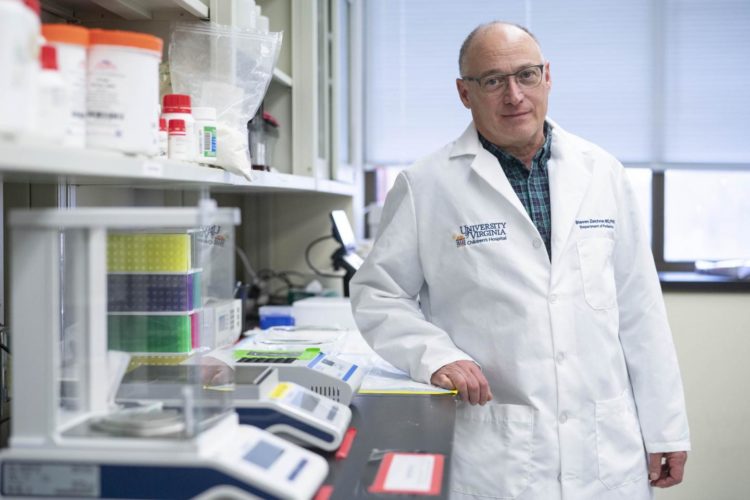
Credit: Sanjay Suchak | UVA Communications
Though COVID-19 so far appears to be largely sparing children, researchers are cautioning that it is critical to understand how the virus affects kids to model the pandemic accurately, limit the disease’s spread and ensure the youngest patients get the care they need.
The warning comes from Steven L. Zeichner, MD, PhD, the head of UVA Health’s Division of Pediatric Infectious Diseases, and Andrea T. Cruz, MD, MPH, a pediatric emergency medicine physician at Houston’s Baylor College of Medicine. They have authored a commentary in the journal Pediatrics accompanying a new article that reveals a small percentage of infected children become seriously ill. Those at greatest risk include babies and preschoolers.
“Many infectious diseases affect children differently than adults and understanding those differences can yield important insights,” the commentary authors write. “This will likely be true for COVID-19, just as it was for older infectious diseases.”
Assessing COVID-19 Risks
Zeichner and Cruz note that there are subgroups of children who appear to be at greater risk of COVID-19 complications, particularly those who are younger, immunocompromised or have other pulmonary health problems.
However, the presence of other viral infections in up to two-thirds of childhood coronavirus cases makes it very difficult to assess the true effect of COVID-19 on children, they state. (This figure is based on prior studies of children with coronaviruses detectable in the respiratory tract.)
While much remains unknown, Cruz and Zeichner caution that children, even asymptomatic children, could play a “major role” in disease transmission. For example, they cite a study that found the virus remained in children’s stool for several weeks after diagnosis. That, combined with other routes of transmission such as nasal secretions, could pose a major challenge for schools, day care centers and the children’s families, they note.
“Since many children infected with COVID-19 appear to have have mild symptoms, or even no symptoms at all, it is important to practice all the social distancing, hygiene and other precautions being recommended by public health authorities to minimize transmission from children to others, including family members who may be at greater risk from the infection, such as grandparents or family members with chronic medical conditions,” said Zeichner, who is working on innovative potential COVID-19 vaccines in his lab. “In addition, studies of the reasons why children are affected differently than adults by the infection may yield insights that can be helpful in understanding the disease and ways to treat or prevent it.”
###
About the Authors
Zeichner holds appointments in the UVA School of Medicine’s Department of Pediatrics and the Department of Microbiology, Immunology and Cancer Biology. He is part of UVA Children’s Child Health Research Center. Cruz is part of Baylor’s Department of Pediatrics. They are associate editors of the Pediatrics journal.
In addition, Zeichner is an inventor of technology to develop vaccines rapidly that is being patented by UVA.
Their commentary accompanies the article “Epidemiology of COVID-19 Among Children in China” by Yuanyuan Dong, Xi Mo, Yabin Hu, Xin Qi, Fang Jiang, Zhongyi Jiang and Shilu Tong.
To keep up with the latest medical research news from UVA, subscribe to the Making of Medicine blog at http://makingofmedicine.
Media Contact
Josh Barney
[email protected]
434-906-8864
Related Journal Article
http://dx.





